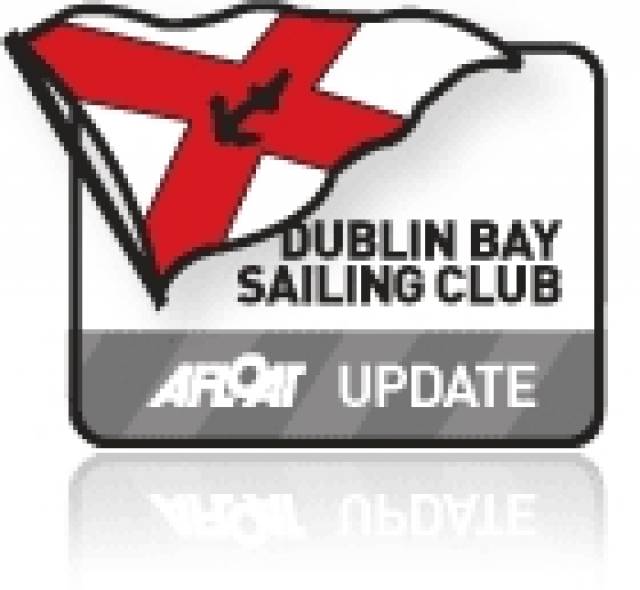#dbsc – The boats are lifted in, 23 racing marks are laid across the Bay and the Dublin Bay Sailing Club yearbook has been posted to 1,200 members. It means only one thing; the biggest sailin league in the country – is about to start.
For the 2015 season there have been tweaks to the DBSC racing format.
In the keelboat divisions, the trend of mixed handicap and one-design racing will be carried further when the Sigma 33 class start racing with Cruisers 2.
The Sigmas enjoyed a considerable popularity in Dublin Bay since they emerged as a separate class in 2000 but recently this has waned. Re-joining Cruisers 2 on the starting line, with which they raced earlier, should provide all concerned with more competition, according to Sigma captain Paddy Maguire.
The Sigmas will retain their separate identity, and will continue to receive separate results, as will Cruisers 2. But overall ECHO and IRC results will be provided for the combined fleets.
In the foreword to the 2015 DBSC yearbook, Commodore Pat Shannon comments:
'There was a time when DBSC was almost entirely a one-design club – in fact, Dublin Bay, deservedly or not, had the reputation of being "the home of one-design racing". The reason advanced for this accolade was that Ireland was not on the same economic level as our more affluent neighbours. One-design racing suited our pockets. We could not afford – so the argument goes – the constant innovation, the frequent model changes that is the hallmark of cruiser racing.
Such is no longer the situation. Whether or not economics has anything to do with it, cruiser racers form an important part of the Dublin Bay fleet – up to one- third in 2014. Cruiser racers, yes, but with a qualification. For some, like the 31.7s, the distinction between cruisers and one-designs is academic, since, in essence, they are one-design and receive one-design points, the accompanying ECHO handicap points providing an award system for boats that may not be in a position to compete on level rating.
The one-design/cruiser distinction is not so absolute either in Cruisers 1. The J109s constitute a major part of the fleet, and in addition to IRC and ECHO results, also receive points for one-design
This trend of mixed handicap/ one-design racing is carried a step further in this season's programme, with the Sigma 33 class racing with Cruisers 2. The Sigmas enjoyed a considerable popularity in Dublin Bay since they emerged as a separate class in 2000 but recently this has waned. Re-joining Cruisers 2 on the starting line, with which they raced earlier, should provide all concerned with more competition and more enjoyable racing. The Sigmas will retain their separate identity, and will continue to receive separate results, as will also Cruisers 2. But overall ECHO and IRC result will be provided for the combined fleets.
The dinghy situation continues to occupy the committee's minds. We conducted an on-line questionnaire during last season among interested parties to see what changes to the programme might encourage more entrants and more classes but no clear pattern or consensus emerged. Further discussions took place over the winter months with dinghy representatives which will result in some changes to the 2015 programme'.
The first 2015 DBSC Races are: Tuesday 28th April, Thursday 23rd April and Saturday 25th April. The last races of the season will be: Tuesday 25th August, Thursday 27th August
Saturday 26th Sept.
































































